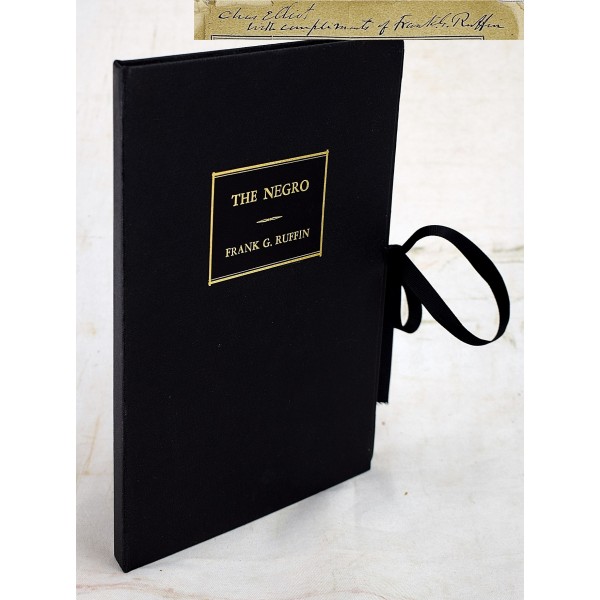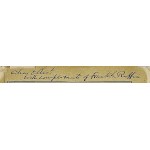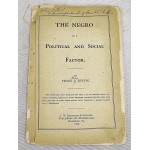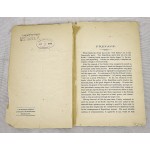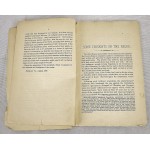The Negro as a Political and Social Factor. (Signed)
The Negro as a Political and Social Factor. (Signed)
Frank G Ruffin
Richmond: J. W. Randolph & English, 1888
[Race Relations in Post-War Virginia: Inscribed by the author, Frank Ruffin] Original printed wrappers. Wraps badly chipped, detached. Housed in a custom cloth clamshell case. Leather cover label with gilt. 32 pp. LCP 9006. Work 387.
Colonel Francis Gildart Ruffin was a member of the Virginia bar. He served as a Colonel in the Confederate army. After the war he was active in Virginia politics, serving in state office as an auditor. Hi inscribed this work to President Charles Eliot, of Harvard. Eliot was one of the longest serving (1869-1909) and transformative Harvard Presidents. Harvard College stamp.
Includes an analysis of the African American colony of Liberia v. America. In this work, Ruffin, argues that because of the inherent moral inferiority of black people to whites, negroes should not hold political power. Ruffin clearly states that systemic racism has denied the negro suffrage and political power: "It is by the nullification of these amendments [the thirteenth, fourteenth, and fifteenth to the Constitution of the United States] that the Democratic party has come into possession of the executive department of the general government and the House of Representatives, i.e. by preventing colored citizens from voting when expression of their preferences endangered the political supremacy of the Democratic partisan despotism." p. 28. Ruffin's ponderous article goes on to attack arguments for equality or freedom for negroes on the basis that it would lead to the downfall of our society. He attacks the American Colonization Society and pro-black northerners as promoting a failing course.
